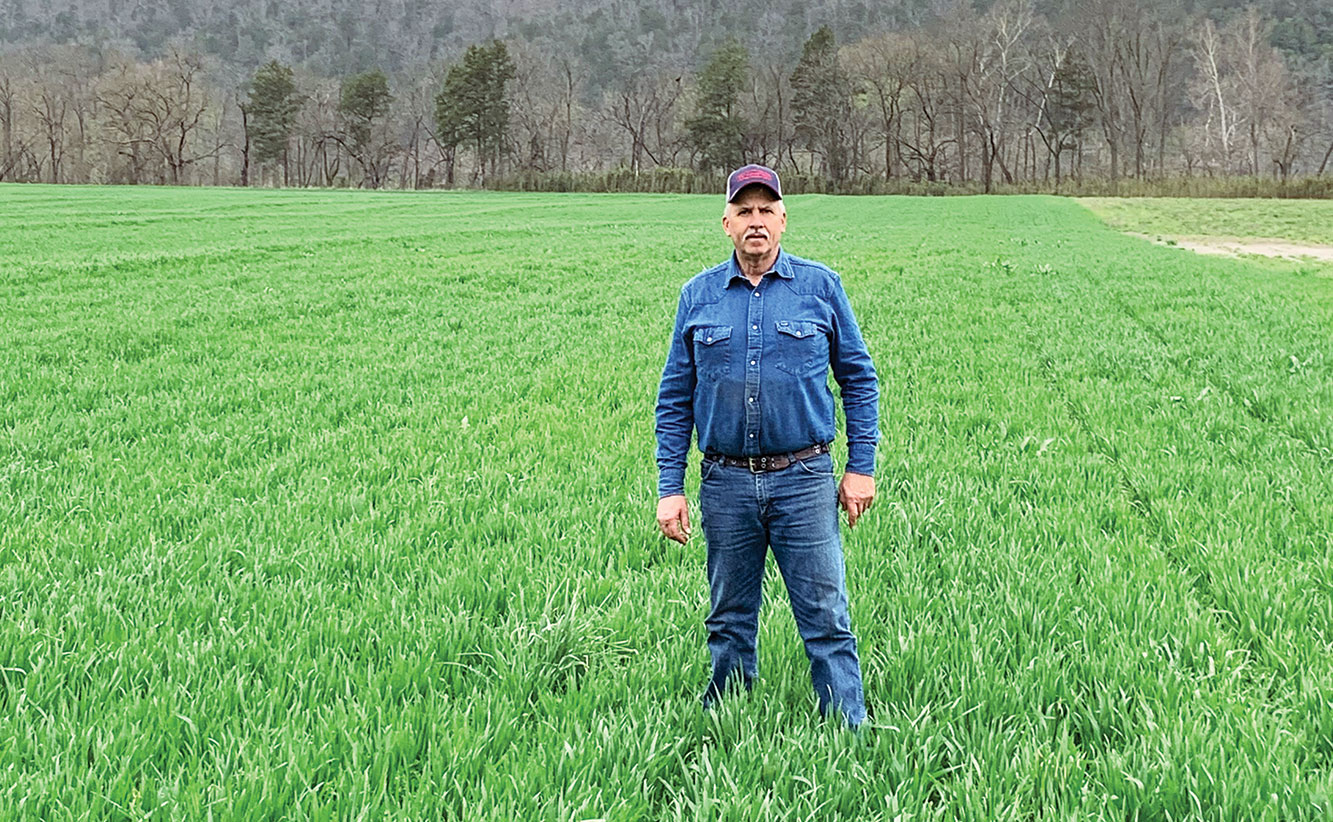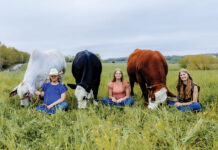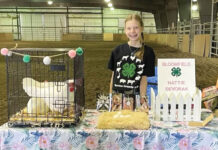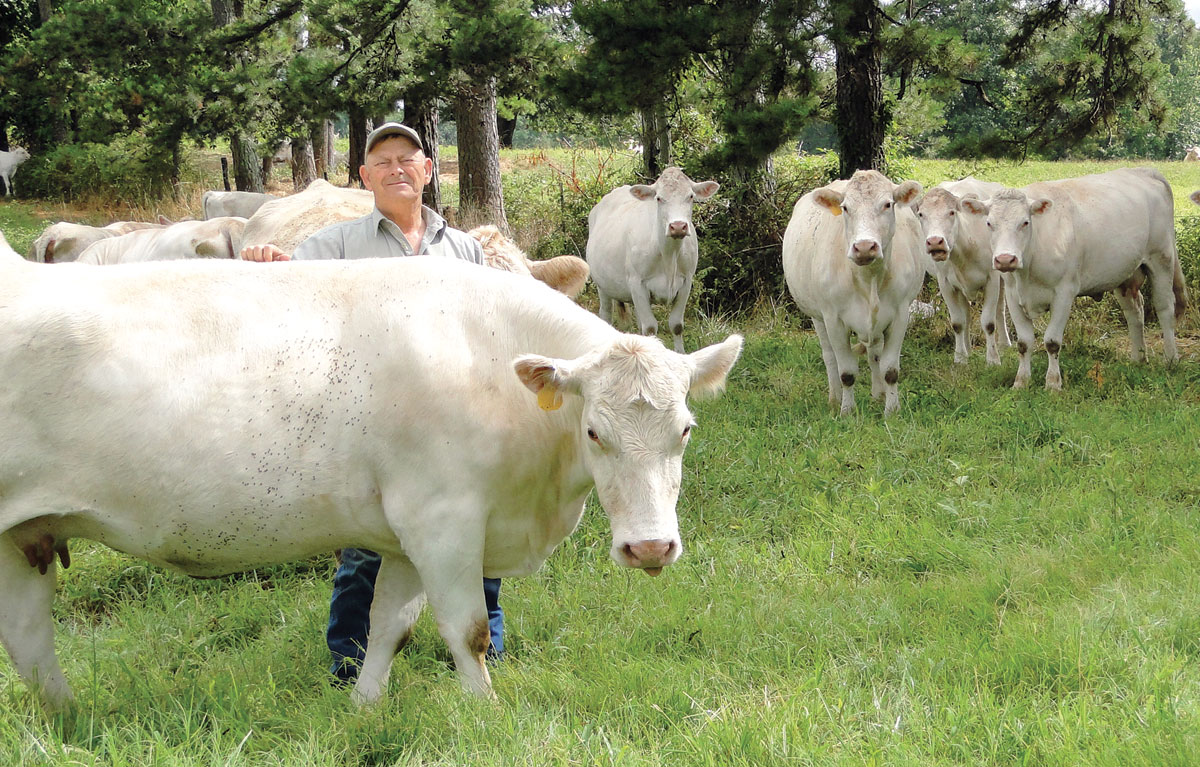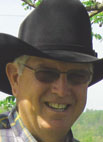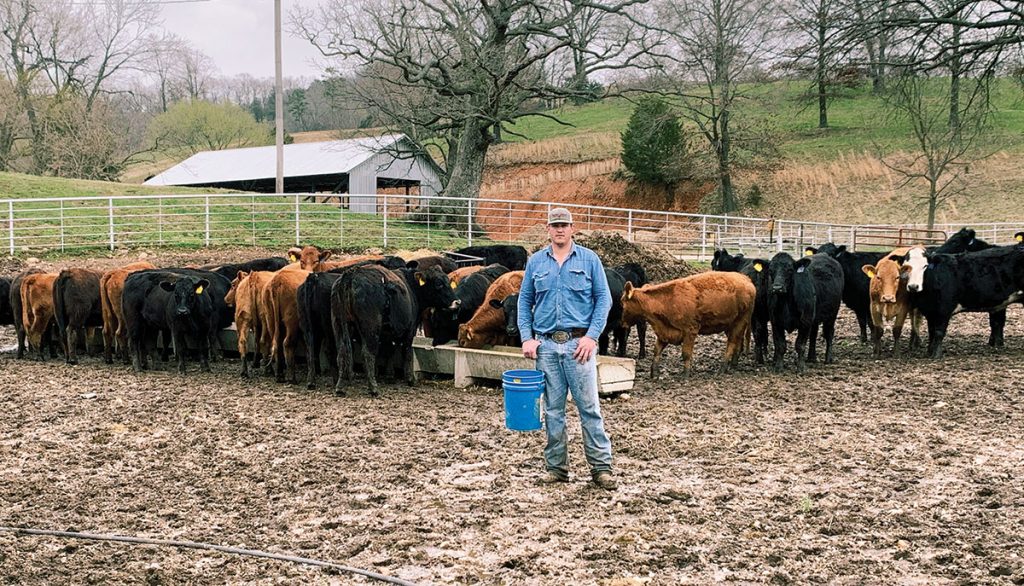
The McCoys manage four ventures on one farm
Both Greg and Delene McCoy were raised on farms that once had hogs and cattle.
They now own and lease just under a 1,000 acres on the farm where Greg was raised.
Greg and Delene have been happily married for 37 years raising four children who have provided them with three grandchildren. Their children are the fifth generation on the farm.
When young Greg got off the school bus, he worked on his grandparents’ farm. He remembers his grandfather Clyde Cisco making daily trips to the famous Stamps Store in Osage for a visit with owner Frank Stamps. At that time, the farm produced both cattle and corn with the fields being plowed by mules. Those years embedded themselves in Greg’s mind and heart, so much so that he attended the University of Arkansas for only one day before he returned home declaring school was not for him and he wanted to farm.
“I’ve never seen anyone as passionate about the land and farming as Greg,” Delene said. “He was the only male descendent and fought to preserve the farm he so loved.”
The farm has four income streams: a cow/calf herd; an alfalfa and Bermuda hay business, including licensed commercial spraying; a dealership for Consumers Supply Distributing; and a dump truck and gravel business. Delene, on the other hand, is a highly-educated teacher with both a master’s degree in gifted education and an educational specialist degree in educational leadership with an emphasis in curriculum and instruction. She currently teaches gifted students from grades six through high school in Berryville, Ark.
The McCoys are not as concerned about producing a single color of cattle as they are about creating a productive and efficient herd through hybrid vigor.
The herd consists of 150 cows bred by eight bulls that are pastured on their 600 leased acres. They began with 15 Herefords and added Gelbevieh for milk production, later adding Red Angus for structure. All of the breeding females have been raised on the farm. Their current cadre of bulls is comprised of Red Angus, black Angus, Herford and Charolais. Red females are bred to the Charolais, while white-faced and mixed females are bred to the black Angus and Hereford bulls. These combinations produce spring and fall calves with a weaning weight of 650 to 750 pounds, which are then sold at weaning at local livestock markets. A few are also sold to individuals wanting meat. The McCoys deliver those animals to War Eagle Processors in Hindsville, Ark., where they also bring animals for their personal consumption.
Calves are sold preconditioned. The herd is worked twice a year using regular protocols in addition to vaccinating for black leg twice a year. Additional nutrients are handled through a mineral that also contains fly control, and worming through a pour-on wormer administered twice a year, supported by additional spraying for fly control if the year is particularly difficult. All animals are grass and hay fed, except for newly purchased bulls kept in a separate pen for short acclamation as are the 20 to 30 annually retained heifers.
“We won’t keep any high headed animals,” Greg explained. “We pretty much know the temperament of the bulls before we buy them but hand feeding the heifers will alert us of any not up to our temperament standards.”
The home place is the center of the McCoy hay operation. Greg is fully licensed for fertilizers, herbicides and pesticides and custom spreading for other local farmers as well as his acreage. Greg fertilizes with commercial fertilizer although he also uses some bio fertilizer. About 80 acres is set aside for alfalfa. That land usually produces five cuttings, harvesting every 21 to 28 days. The alfalfa hay is sold in small and large square bales, though he occasionally fills a special order for round bales.
The Bermuda acreage is overseeded with wheat, which is the first cutting of the year for those 80 acres. Overseeding with wheat provides hay as well as preventing, undergrowth from developing. Bermuda is harvested beginning in late June with a total of two to three cuttings. The McCoy hay customers are mostly in the three-state area. All land is soil tested annually to determine appropriate treatment. Pastures are orchardgrass, bluestem on north and south hillsides, Bermuda and some natural clovers with little fescue presence.
An outgrowth of the haying business is serving as an outlet for Consumers Supply Distributing. Many of their hay customers buy protein tubs for horses, goats and sheep as well as cattle. The McCoys have offered minerals and nutrition as a way of helping those customers for 25 years.
In an effort to create a totally different sideline to his life, Greg mines gravel according to EPA and Arkansas Department of Environmental Quality standards and delivers it to a variety of customers.
Last October Greg was very seriously hurt when he was doctoring a baby calf. The 1,700-pound momma decided she didn’t want to be separated from her calf. She charged crushing Greg’s neck and paralyzing his right side. He lay for an hour before Delene came home and found him. He was in surgery for eight hours rebuilding vertebra and treating other issues.
“God was good to us,” said Delene. “He regained the ability to drive in January and is no longer paralyzed though he still experiences tingling and some pain. He is 95 percent recovered when the experts thought he would never walk again. Our middle son Matt came home and now works with us full time, another blessing.”

